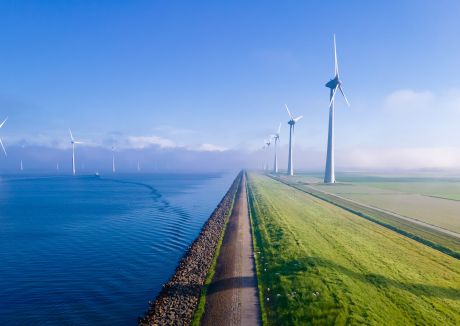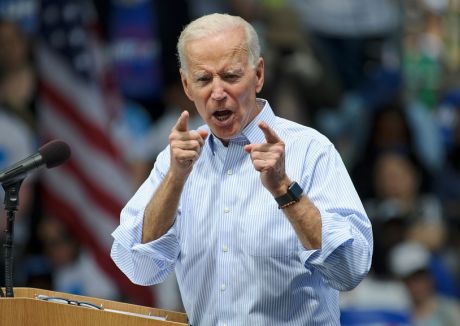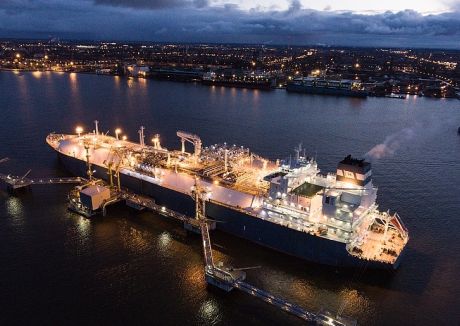The number of floating storage and regasification units (FSRUs) not used in their primary capacity as importing infrastructure has increased in recent years. Here, we look behind the numbers as delayed or cancelled import projects, complicated by arrival of speculative FSRU orders, have led more FSRU owners to charter their vessels as conventional carriers.
Eight of the current FSRU fleet (c. 25%) is at present being utilised as LNG carriers. A further two are in lay-up or awaiting the start of their assigned import projects. This excludes smaller-scale vessels such as Exmar’s 25,000m³ barge-based FSRU.
Two years ago, in mid-2017, the utilisation rate was a little higher – only four of the then 22 FSRUs were unfixed.
Utilisation may drop further in the coming years. Only five of the nine newbuilds expected for delivery in 2019-2021 have announced initial charter agreements or are linked to import projects currently under development. The remaining four FSRUs for imminent delivery were ordered on a speculative basis and as yet have not been publicly linked to specific import projects.
Of those five newbuilds linked to import projects, one such project is yet to be sanctioned (Brazil’s Port of Acu, led by GNA – although Gas Strategies understands that FID is imminent) while another has already been delayed multiple times (Swan Energy’s Jafrabad project in India) – further delays could leave the allocated vessel sitting idle after delivery.
Further crowding the market are the FSRUs approaching the end of their charter periods. At least five such vessels will end their current charters in the next four years. Some of these charters are unlikely to be renewed, including the two FSRUs currently used in Argentina and Egypt – countries which are likely to end LNG imports soon as indigenous production ramps up. Kuwait will likely also release its solo FSRU when much larger onshore import capacity comes online in 2021.
FSRUs on spot or short-term charter as LNG carriers may have raised good revenues for their owners in 2018 when charter rates skyrocketed, however spot rates have since retreated. Competition in the shipping market is set to climb, with nearly 50 conventional carriers slated for delivery in 2019-2021 and therefore conventional shipping may be a less attractive alternative home for FSRUs in the coming years.
This apparent over-availability of FSRUs could have been even higher but for the foresight of some shipowners. Maran Gas exercised an option in mid-2018 to switch one FSRU on order with DSME to a conventional carrier. Excelerate Energy withdrew last year from a potential order for up to seven newbuild FSRUs – also with DSME.
Not all doom and gloom
It’s not all bad news for FSRU owners, though. 25 countries have joined the ranks of new LNG importers since 2008 and most (>70%) of these new markets utilised floating infrastructure to import LNG.
As highlighted in Gas Strategies’ New LNG Markets ViewPoint, published late last year, successful FSRU projects were most often initiated, or directly supported, by state-owned entities – particularly in those countries with no other previous experience of importing LNG. Such support was notably missing from two cancelled or long-delayed projects which Hoegh had already committed FSRUs to in recent years: Quantum’s Tema project in Ghana and a GEIL-led project at Port Qasim in Pakistan.
Although input from state-owned entities was a success factor for most new LNG importing countries in recent years, it hasn’t been necessary for all new FSRU projects. Even where direct government input is lacking, project success can be secured by the backing of another powerful patron – specifically large LNG suppliers – typically large portfolio players or some trading firms.
Such suppliers are increasingly lending support to import projects where they can either secure supply exclusivity or establish capacity in a “back-up” market where they can achieve reliable prices when demand in other, traditional LNG markets is lower.
Engro is developing Pakistan’s third FSRU-based import terminal with Shell and Gunvor as partners. If the project starts in 2021 as planned, it will be the first private LNG facility in the country. Such projects – backed by a large supplier rather than developed entirely off the back of perceived market demand for LNG from the importing country – may be safer bets for owners seeking a home project for their FSRUs.
Looking forward, the positive influence of supplier-led support could be felt in the multiple import projects which have been proposed in both Germany and Australia – countries with established gas markets but which have different rationales for LNG imports than other, less mature gas markets. Large suppliers (such as Qatar Petroleum and ExxonMobil) or firms with multiple long-term offtake agreements (including trading firms such as Uniper and some northeast Asian importers) have shown interest or are already involved in developing most of the projects in those two countries.
And what of the projects linked to those five newbuild FSRUs due to be delivered in the next three years with allocated projects? All five FSRUs will be based in countries which have established gas markets and by the time they are delivered, all of those countries will already have operational FSRUs (Brazil, two in Turkey, Indonesia and India). Further, almost all projects will count a state-entity or large portfolio player as project leader or partner. From our criteria above, the projects which those FSRUs are allocated to appear to have firm foundations.
If you would like more information about how Gas Strategies can help your business with Consulting services across the value chain or provide industry insight with regular news, features and analysis through Information Services or help with people development through Training Services, please contact us directly.








